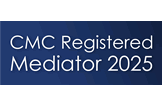
All About People
Need help to resolve your business, personal or employee conflicts & disputes?
Stay up to date with our latest news and workshops.

Here are some of the primary reasons why disputes occur in the workplace:
Communication breakdowns are a significant source of workplace conflict. Misunderstandings, lack of clear instructions, and insufficient feedback can lead to confusion and frustration among employees. For example, if a manager fails to communicate expectations clearly, team members might not perform tasks as expected, leading to conflict.
Workplaces are composed of individuals with diverse backgrounds, beliefs, and values. These differences can lead to conflicts when employees have opposing views on work practices, ethical standards, or personal values. For instance, a disagreement on how to handle a client situation can spark a dispute if team members have different approaches or priorities.
Not everyone gets along, and personality clashes are a common cause of workplace disputes. Differences in temperament, work styles, or interpersonal skills can lead to friction. For instance, a highly detail-oriented employee might struggle to work with a colleague who has a more relaxed approach, resulting in conflicts over work quality and deadlines.
Ambiguity in job roles and responsibilities can create confusion and conflict. When employees are unsure of their duties or overlap in responsibilities occurs, it can lead to disputes over who is accountable for specific tasks. For example, if two employees believe they are responsible for the same project deliverable, conflicts can arise regarding ownership and contribution.
High workloads and stress can exacerbate tensions in the workplace. Overburdened employees are more likely to experience burnout, frustration, and irritability, which can lead to conflicts. For instance, an employee who feels overwhelmed by their workload might clash with colleagues who are perceived as not pulling their weight.
Perceived or actual inequities in the workplace, such as favouritism, discrimination, or unequal pay, can lead to significant disputes. Employees who feel they are being treated unfairly compared to their peers are likely to become disgruntled and confrontational. For example, if one employee receives a promotion over others who believe they are equally or more qualified, resentment and disputes may arise.
Changes within an organisation, such as mergers, acquisitions, restructures, or new leadership, can be a breeding ground for disputes. Employees might resist change or feel anxious about their job security, leading to conflicts. For instance, a merger that combines two different corporate cultures might result in disputes as employees adjust to new ways of working.
Feeling undervalued or unappreciated can lead to disputes. Employees who believe their hard work is not being recognised or rewarded may become disengaged and confrontational. For example, if an employee's efforts are consistently overlooked while others receive praise, it can create a sense of injustice and lead to conflict.
Ineffective leadership can be a significant source of workplace disputes. Leaders who are indecisive, lack transparency, or fail to address conflicts can create an environment where disputes are more likely to occur. For instance, a manager who avoids dealing with interpersonal conflicts within their team may allow issues to fester and escalate.
Workplace disputes are complex and multifaceted, arising from a variety of sources. Effective conflict resolution strategies, clear communication, equitable treatment, and strong leadership are crucial in mitigating these disputes. By understanding and addressing the root causes of workplace conflicts, organisations can foster a more collaborative and productive work environment.
At All About People, we have a range of interventions to support organisations and individuals in dealing with workplace disputes and differences. These include conflicting management coaching, mediation and dispute resolution for specific cases and learning and development programmes to enable individuals and teams manage effectively and proactively when disputes and differences arise.

Strategic Advice and Guidance for you and your organisation. Our accreditations:




Stay up to date with our latest news and workshops.